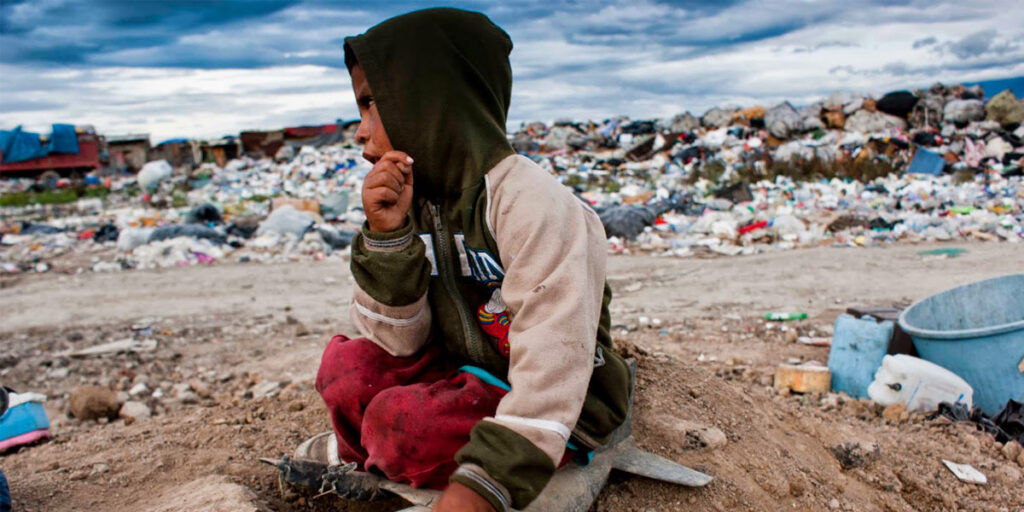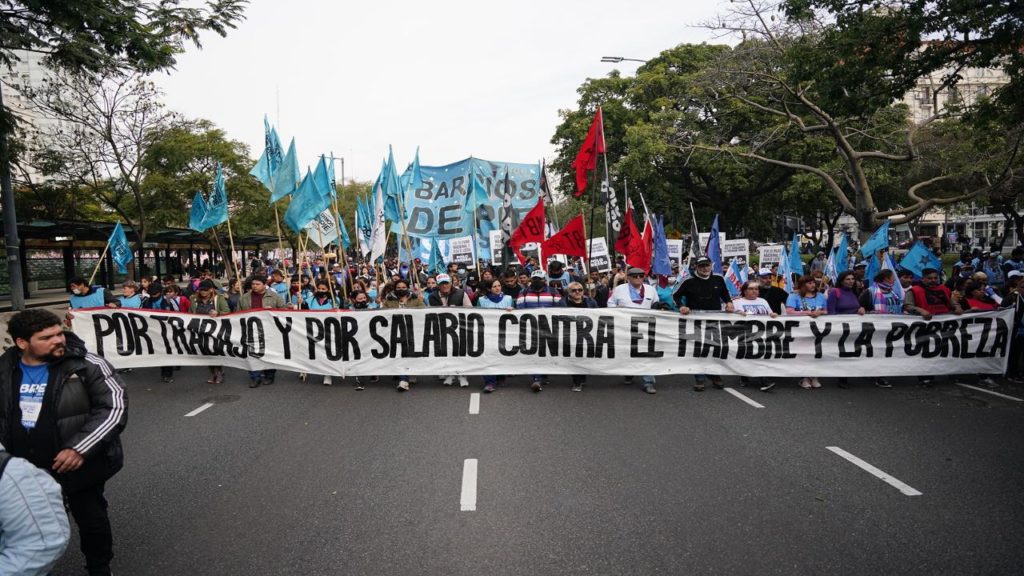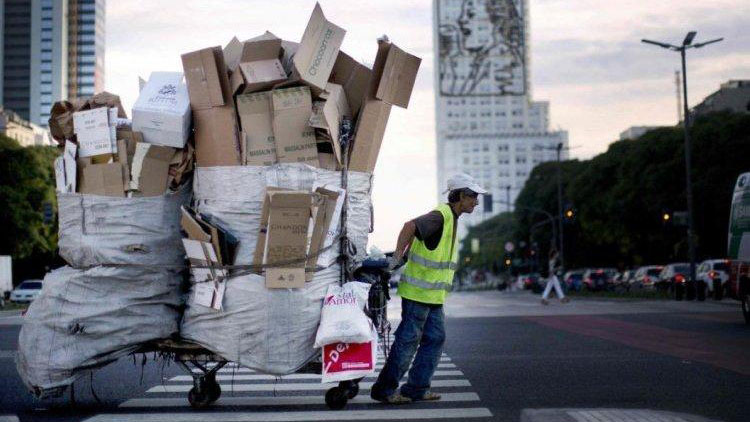Argentinian vice president Cristina Fernández de Kirchner spoke at the Central de Trabajadores de la Argentina (CTA) for Flag Day, on June 20 about the political, social and economic situation in the country. Argentina’s former president presented data indicating that the country that is constantly growing and exporting, at the same time that the poverty level remains (or increases), and the vast majority of its population is affected by the scourge of rampant inflation.
In this context: Is it the social organizations that should be controlled or rather the sectors of concentrated power?
Although the criticisms raised by the former president seem to be aimed directly at President Alberto Fernandez, thus running the risk of deepening the internal conflict within the “Frente de Todos” coalition, there is no doubt that Cristina’s words tend to generate debates that usually go unnoticed, yet are part of the answers to Argentina’s problems.
Although Kirchner did not put it this way, this most recent speech made by the two-time president spoke of the urgent need to redistribute wealth in Argentina. Before social discontent ousts the ruling party, which is heading divided towards the 2023 presidential elections.

A pandemic and war-resistant soybean
According to data from the National Institute of Statistics and Census (INDEC), Argentina’s Gross Domestic Product (GDP) increased 6% from the prior year during this first quarter of 2022. According to official data from the Argentine Foreign Ministry, last April exports totaled USD $8,327 million, with a year-to-year growth of 35.6%, representing “the highest historical record for this month in history”.
In other words, neither the pandemic nor the war between Russia and Ukraine generated a loss for Argentina’s major exporters, on the contrary, they benefited.
A report by the Political Investigation Team (EdIPo) and the Current Events Viewpoint of Labor and Economics (MATE), shows this even more clearly: “If we take only the year 2021, we will see that the soybean and cereal industry will represent 51.75% of Argentina’s total exports, exceeding 40 billion dollars,” almost the exact amount of Argentina’s debt with the International Monetary Fund (IMF).
On the other hand, in 2022 alone, extra profits are estimated at around USD $3 billion according to estimates by the Rosario Grain Exchange.

Domestic debt: more and more poverty and inflation
However, at the same time that the country is registering macroeconomic growth, record exports and a far from minor recovery in relation to the effects of the pandemic and the global war, poverty and inflation figures are accelerating.
The percentage of people living below the poverty line exceeded 37%, currently affecting more than 17 million Argentines. To make matters worse, inflation continues unabated, increasing poverty and indigence.
In May, the Total Basic Food Basket (CBT) increased by 4.6%, so that a family composed of two adults and two children in Greater Buenos Aires (GBA), for example, needed a monthly income of 99,677 pesos (USD$796) to avoid falling below the poverty line, according to INDEC’s data. So far this year, inflation is 29.3% and the year-on-year inflation rate exceeded 60 points, the highest in the last 30 years.
A piece of information that did not receive mainstream media attention, but that paints a picture of a country that is modifying its cultural habits due to the suffering economy (or rather, the deep social inequality): According to the Rosario Stock Exchange, in 2021 an average of 47.8 kilos of beef was consumed per capita, the lowest amount of consumption since 1920.

What are the urgent issues?
The contradiction regarding CFK’s speech is that, at the same time that she presented a situation of profound inequality in income redistribution, she ended up offending a sector of informal workers, who are undoubtedly the hardest hit in Argentina.
“With this unemployment there should be fewer social programs. The national government must recover the control and auditing of the programs, which cannot continue to be outsourced,” said the former President, adding, “That is not Peronism. It is not depending on a neighborhood leader to approve it. And especially the women, who are the most exploited, the most exploited, the most harassed. If Evita could see them, Mamita!”
The truth is that, according to the National Council for the Coordination of Social Policies, there are 182 social programs in effect in Argentina, which are aimed at some 25 million people. Of this total, the social programs designed only to contain poverty are reduced to only one: Empowering Work.
But even so, according to official data from the Union of Workers of the Popular Economy (UTEP), the union that brings together the largest number of social organizations, the total number of social programs managed by the movements does not exceed 450,000 Empowering Work. Meanwhile, there are another 220,000 programs of this type for state agencies, such as Secretariat of Comprehensive Policies on Drugs (SEDRONAR) and the Ministry of Women) and NGOs, such as Caritas. On the other hand, governors and municipalities manage a fund of 600,000 Empowering Work.
Therefore, the state (from its national, provincial or municipal orbit) continues to dominate the control of most of the social programs in the country.
In any case, whether or not social programs should pass into the hands of social organizations seems to be a secondary discussion to an issue that ironically emerges as a claim in the ranks of the Popular Economy: Are there real conditions for incorporating millions of beneficiaries of social plans into formal employment in the short term?
If the answer is “yes”, the state and its successive governments will have to concretize the true inclusion of this sector that today, it is estimated, exceeds 11 million people, based on the amount of Emergency Family Income (IFE) that was allocated during the pandemic.
But if the answer is “no”, the urgency does not seem to lie in how to control social programs, but rather in how to ensure that, while capitalism continues to be a system of disposal, millions of human beings can eat and live with dignity in our country.
For this purpose, the Universal Basic Wage has been proposed, a proposal that paradoxically is finding consensus with Kirchnerism within Congress.
This article was originally published in ARGMedios.





